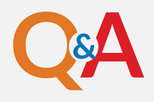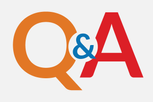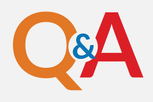 https://www.soberrecovery.com/images/og-image.gif
https://www.soberrecovery.com/images/og-image.gif
What should I do when my temptation for alcohol or drugs is replaced by addictions to food, sex or gambling?
An individual that is in recovery from drugs and alcohol can often also experience addictions to food, sex and gambling. These are identified as process addictions. It is important to understand that if these addictions are interacting with each other it could transition into a more severe issue. To support your continued recovery efforts, I would recommend that you be open with your sponsor, sober support network and therapist. If you do not have a therapist I would recommend obtaining one so that you can identify coping strategies to manage these new surfacing addictions.
Outreach Representative, Transformations Treatment Center
www.transformationstreatment.center
What you are referring to is how to deal with an impulse control disorder. Persons with the disorder cannot resist urges to harm themselves in some way. A person will typically feel excessively tense and even aroused before committing such acts. During the act they will feel pleasure or relief from tension. Afterward, the person feels guilty and remorseful.
Impulse control disorders can be treated with drugs, particularly the class of antidepressants known as serotonin reuptake inhibitors. This indicates that the neurotransmitter serotonin may play a role in these disorders.
The most highly recommended non-medical treatments include Cognitive Behavior Therapy (CBT). CBT works to solve current problems and change harmful thoughts and behaviors. CBT has proven as effective as medication and can enhance the effects of medication.
CBT has been demonstrated to effectively treat mood, anxiety, personality, eating, substance abuse, gambling and even psychotic disorders.
CBT comprises of six phases:
- Psychological assessment
- Reconceptualization
- Skills acquisition
- Skills consolidation and application training
- Generalization and maintenance
- Post treatment assessment follow-up
More information can be found at the website of the National Association of Cognitive-Behavioral Therapists – www.NACBT.org or www.NAMI.org, the website of the National Alliance on Mental Illness.
CBT is not new. It has been practiced around the world for over 30 years. The results show long-term success rates and the therapies remain useful as an approach to many of life’s problems.
Tess Chedsey
Sober since June 2006
In early addiction, it is common to replace drugs or alcohol with food. However, if you find that you still have food cravings and are eating way too much as you get further into recovery, it may be time to do something.
Drugging, drinking and eating are all symptoms of underlying issues. If you have not yet thought about seeing a counselor or therapist to help you address the issues that led you into drinking or drugging, and now eating excessively, it may be a veritable option for you now.
In most instances, the reason we turn to substances or food is related to unresolved trauma from our childhood or adolescence. These wounds will continue to fester unless we do something about it, which will require effort, bravery and commitment. If we are willing to put in the work, the results can be worthwhile. There is no quick fix to these issues, so don’t expect results to happen overnight.
In the meantime, there are techniques that can help. Here are a few ideas:
- Make a commitment to cut out starchy and sugary foods.
- Replace unhealthy snacks with healthier alternatives (for instance, cookies for a piece of fruit).
- Set a goal to increase your exercise routine, start working out, play a sport or go for long walks outdoors.
- When you find yourself reaching for those unhealthy snacks, try to distract yourself with a hobby or other activity that will take your mind off the cravings for sugar.
It may be difficult at first, but as you gradually make the changes that you know will make a difference to your health and well-being, you will start to feel so much better, and the new habits will begin to stick.
Nina Bradshaw, Mental Health Professional
Mental Health Center
If you or someone you know is seeking help from addiction, please visit our directory of treatment centers or call 800-772-8219 to to start the path to recovery today.






